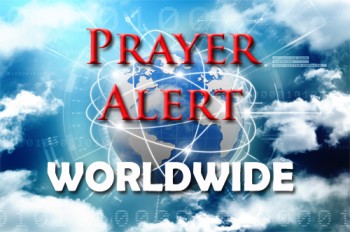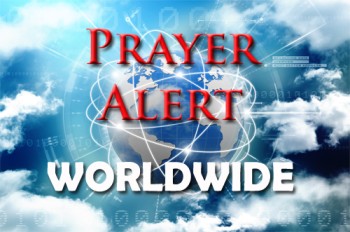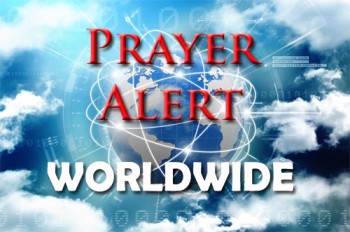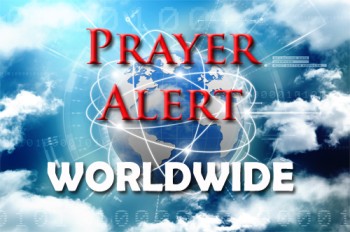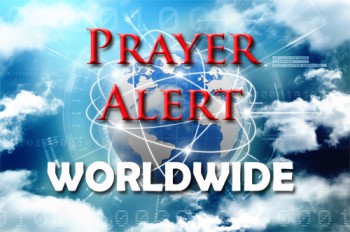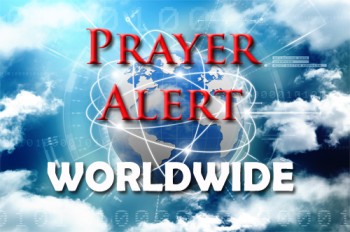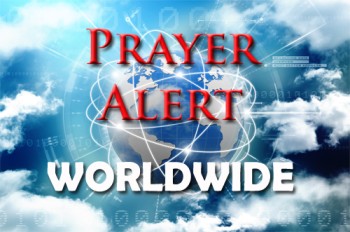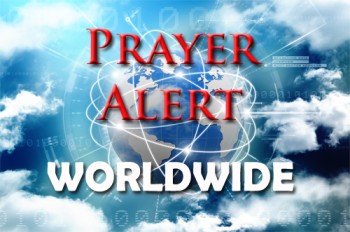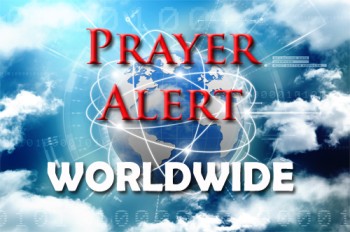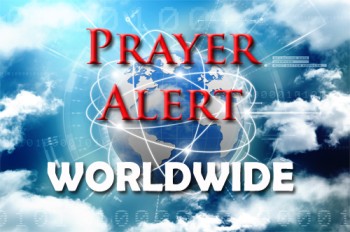Displaying items by tag: Australasia
Australia: shock and grief after mass shooting on Bondi Beach
Australia is mourning and in shock after a mass shooting at a Hanukkah celebration on Sydney’s Bondi Beach on 14 December left 15 people dead and dozens wounded. Police have charged 24-year-old Naveed Akram with 59 offences, including fifteen counts of murder and a terrorism charge; he is said to have carried out the attack alongside his father, Sajid Akram, who was killed at the scene by police. The shooting targeted a Jewish community event on the beach marking the start of Hanukkah. As funerals and vigils were held, grief-stricken families remembered victims, including Rabbi Eli Schlanger, who organised the event, and ten-year-old Matilda, whose name has become a symbol of innocent loss. Authorities say the attackers had recently travelled to Davao City in the Philippines, an area associated with extremist Islamic ideology. The government is under pressure because the men were legally able to acquire the high-powered weapons used in the attack; prime minister Anthony Albanese has vowed to toughen the country’s gun laws, and to work with the Jewish community to ‘stamp out and eradicate antisemitism’.
Australia: under-16s prepare for social media ban
The impending ban on social media access for under-16s in Australia has sparked confusion, concern, and debate among students, parents, experts, and global observers. From 10 December, platforms such as Instagram, TikTok, Snapchat, YouTube, and others must demonstrate effective age verification or face major fines. Schools are scrambling to prepare teens for losing access to their accounts, photos, and online communities. Tech companies are rolling out facial age-estimation tools and other verification methods, though questions remain about accuracy and accessibility for older teens. Many young content creators fear losing hard-won followings, while others, like students at phone-free leadership programmes, describe unexpected freedom and richer real-life connections. Advocates warn that some teens rely on social media for support networks and could be pushed toward more dangerous spaces. The policy, inspired partly by concerns over youth mental health, has drawn both strong political backing and legal challenges claiming that it restricts young people’s rights. Other nations are watching closely as similar proposals emerge worldwide.
Australia: Albanese secures re-election with landslide majority
Anthony Albanese has defied the ‘incumbency curse’, securing a historic landslide re-election for Australia’s Labour Party. At the start of the year polls had put Albanese's popularity at record lows, but he led a disciplined campaign focused on cost-of-living concerns, healthcare, housing, and reconciliation with Indigenous Australians. Voters rejected the opposition’s Trump-style campaign led by Peter Dutton, who lost his own seat amid policy missteps and failed attempts to rebrand. With Labour projected to gain 86 seats, and the conservative Liberal-National Coalition reduced to around 40, Albanese becomes the first Australian leader in over twenty years to win back-to-back elections. He now faces pressure to act boldly on climate change, Indigenous reconciliation, and economic reform. International leaders welcomed the result, but there are now questions about whether Labour will now use its strong mandate to pursue lasting change. The campaign’s tone and outcome suggest Australians have chosen stability over polarising rhetoric and disruption.
Australia: two beaches closed due to toxic foam
Two beaches in South Australia have been closed after dead fish and an off-white foam appeared onshore, while surfers reported feeling unwell. Authorities suspect that a microalgal bloom, fuelled by unusual weather, has caused these problems. Environmental scientist Sam Gaylard called the event ‘concerning’ due to its scale. The two beaches, south of Adelaide, were shut down on 17 March. Surfers reported symptoms like sore eyes, throats, and coughing. Marine scientists have collected foam samples, though identifying the organism may take days. It is not certain how long this situation will last: the algae, probably triggered by extended hot, dry weather and calm seas, might be dispersed by increasing swells.
Australia: first man with artificial heart is discharged from hospital
A medical milestone has been achieved: the first patient implanted with a durable artificial heart has been discharged from hospital. BiVACOR, a titanium mechanical blood pump, was successfully implanted in a man suffering from severe heart failure. Performed at St Vincent’s Hospital in Sydney, the six-hour surgery marked a breakthrough in cardiac care. Designed to function indefinitely, BiVACOR operates using magnets to eliminate mechanical wear. Queensland-born inventor Daniel Timms spent years developing the device, inspired by childhood experiences working with his father, who later died of heart failure. The patient, previously too weak to walk, lived with the device for over 100 days before receiving a human heart transplant. Doctors anticipate BiVACOR could eventually replace the need for human donors. With more implants planned, this innovation offers new hope to those awaiting transplants.
Australia: couple sentenced for refusing medication to daughter
A court has sentenced Jason and Elizabeth Struhs, members of a sect called The Saints, to 14 years in prison for manslaughter after they denied their eight-year-old daughter, Elizabeth, lifesaving insulin. This resulted in her painful death from diabetic ketoacidosis in January 2022. The sect, led by Brendan Stevens - who received a 13-year sentence - believed in divine healing and rejected modern medicine. Instead of seeking treatment, members prayed and sang as the child suffered. The authorities were only notified 36 hours after her death. Eleven others received six-to-nine-year sentences for their role in the tragedy. Although they claimed religious persecution, the court ruled their faith-based negligence was criminal. Elizabeth’s sister, Jayde, had left the sect years before, condemning its extreme beliefs. The case highlights the dangers of religious extremism and the necessity of medical care in preserving life.
Australia: Scores of whales to be euthanised after mass stranding
Authorities plan to euthanise around ninety false killer whales after a mass stranding on a remote Tasmanian beach. A total of 157 whales beached near Arthur River; many died soon afterwards. Rescuers attempted to refloat two survivors, but rough conditions and strong currents prevented their return to the ocean. False killer whales, one of the world's largest dolphin species, have not stranded in Tasmania for over fifty years. The extremely difficult terrain and treacherous conditions made large-scale rescue efforts impossible, leading to the heartbreaking decision to euthanise the remaining survivors. Eyewitnesses described the scene as horrific, with stranded whales calling out for help. Authorities are now considering how to dispose of the carcasses, respecting the cultural heritage of the site. Experts believe that whales can become disoriented while hunting fish or following a leader into shallow waters. Over 80% of Australian whale strandings occur in Tasmania.
Australia: is increased anti-semitism being funded from abroad?
Australia is investigating allegations that foreign funding is fuelling a rise in anti-Semitic crimes. Prime minister Anthony Albanese revealed suspicions that criminals-for-hire who lack ideological motives are being paid to commit these acts. The authorities are working to trace the sources of funding, whether domestic or international. Anti-Semitic incidents have surged since the Israel-Hamas war began in October 2023. In Melbourne, arsonists firebombed a synagogue, while in Sydney, vandals targeted Jewish neighbourhoods and institutions, including a childcare centre. The police strike force tasked with investigating these crimes has doubled its manpower. Arrests have been made, and one man has been charged with attempting to burn down a synagogue in Sydney. The police are also investigating the involvement of young people in recent incidents, to see if they had been radicalised online.
Australia: plans to cut numbers of international students drastically
Australia, which currently has one of the biggest international student markets in the world, is to introduce a cap on new enrolments, limiting them to 270,000 in 2025, as part of efforts to reduce overall migration to pre-pandemic levels. Each educational institution will face specific restrictions, with vocational and training providers seeing the largest cuts. The move has sparked outrage among tertiary education providers, who argue it could damage the sector and economy. Education minister Jason Clare defended the policy, citing the need to improve the quality of education and address issues of unethical practices among some providers. The cap aims to alleviate pressures on housing and infrastructure, with additional reforms including tougher English-language requirements and incentives for universities to build student housing.
Australia: severe medical conditions affect success of visa applications
When Luca was born in Perth two years ago, his parents were devastated by his diagnosis of cystic fibrosis. Australia's strict immigration policies then compounded their distress by denying their permanent residency, deeming Luca a potential financial burden due to his medical condition. Australia, which prides itself as a ‘migration nation’, routinely rejects visas if medical costs exceed A$86,000 (£45,000) over ten years. Despite having lived in Australia for eight years and filling crucial job roles, Luca’s parents face the possibility of deportation – an example of the policy’s harshness. The government has defended the law, but it is surprising that its own immigration act is treated as exempt from its disability discrimination act. The immigration minister has mentioned the possibility of ministerial intervention for affected children, yet the process is often gruelling. Campaigners argue this policy is discriminatory and outdated, and are pushing for reform.
